Meet the team

Shareholder
Benjamin I. Fink
Practice Areas

Shareholder
Benjamin I. Fink
-
Biography
Benjamin Fink is known for his work in noncompete, trade secret and competition-related disputes. A shareholder at Berman Fink Van Horn, Ben concentrates his practice in business and employment litigation.
Ben has been representing plaintiffs and defendants in disputes involving noncompete, non-solicitation of customers, non-recruitment of employees and non-disclosure/confidential information agreements for more than 25 years. He also has deep experience representing parties in disputes involving trade secrets, tortious interference with business and contractual relations, breach of fiduciary duty and/or duty of loyalty, unfair and deceptive trade practices, business defamation, trade name and trade dress infringement, Computer Systems Protection Act violations, Economic Espionage Act/Defend Trade Secrets Act claims, Electronic Communications Privacy Act claims, Computer Fraud and Abuse Act claims, Stored Communications Act claims and Telephone Consumer Protection Act (TCPA) claims. In this practice, he has successfully handled countless Temporary Restraining Order and Preliminary Injunction hearings.
Ben also represents plaintiffs and defendants in other business and employment disputes, including contract disputes, compensation disputes, business torts, partnership, shareholder and other internal corporate disputes, shareholder derivative lawsuits and securities fraud claims.
With more than 30 years in practice, Ben has handled cases in Georgia’s state and federal courts as well as state and federal courts in more than 15 states. He has handled disputes in arbitration before the American Arbitration Association (AAA) and Financial Industry Regulatory Authority and is an AAA panelist. During this time, he has testified before a joint committee of the Georgia House and Senate tasked with studying proposed legislation on restrictive covenant agreements; served as a member of the State Bar of Georgia Special Legislative Study Committee on Restrictive Covenants, which served as a resource for the Georgia Legislature as it considered legislation; and attended the Inaugural Sedona Conference on Developing Best Practices for Trade Secret Issues, an invitation-only group of thought leaders in trade secret law. Today, Ben serves on Sedona Working Group 12 on trade secrets.
Ben is a graduate of the Emory University School of Law. He received his Bachelor of Arts from Duke University.
In his spare time, Ben enjoys spending time with his family, bicycling, kayaking, hiking and engaging in other outdoor adventures.
-
Credentials
Bar Admissions
- Georgia (1992)
- Supreme Court of Georgia
- Court of Appeals of Georgia
- New Jersey (1993)
- Federal
- Supreme Court of the United States
- Eleventh Circuit Court of Appeals
- Fourth Circuit Court of Appeals
- United States District Court, Northern District of Georgia
- United States District Court, Middle District of Georgia
Education
- B.A., Duke University, 1989
- J.D., Emory University School of Law, 1992
Professional Memberships
- State Bar of Georgia
- Labor and Employment Section
- Intellectual Property Law Section
- Business Law Section
- American Bar Association
- Labor and Employment Section
- American Intellectual Property Law Association
- Trade Secrets Committee:
- Chair, Trade Secret Law Committee (Present)
- Vice Chair, Trade Secret Law Committee (2021-2022)
- Chair, Programming Committee (2019-2020)
- Chair, Legislative Sub-Committee (2013 – 2015)
- Vice Chair, Legislative Sub-Committee (2013)
- Trade Secrets Committee:
- Atlanta Bar Association
- Judicial Selection Committee (2020 – present)
- Co-Chair (2021 – present)
- Lifetime Fellow, Atlanta Bar Foundation
- Labor and Employment Section
- Immediate Past Chair (2015-2016)
- Chair (2014-2015)
- Chair Elect (2013 – 2014)
- Secretary/Treasurer (2012 – 2013)
- Board of Directors (2010 – 2019)
- Litigation Section
- Intellectual Property Law Section
- Judicial Selection Committee (2020 – present)
- Federal Bar Association
- Lawyers Club of Atlanta
- Georgia (1992)
-
Recognition
- Ben was named “Lawyer of the Year” for Litigation – Labor and Employment in The Best Lawyers in America© 2021, 2024.
- Ben has been named a Top 100 Georgia Super Lawyer (2013-present).
- Ben has been selected annually as a Georgia Super Lawyer (2005 – present).
- Based upon peer recommendations, Ben has been selected as one of Georgia Trend’s Legal Elite, Georgia Trend Magazine (2011-present).
- In December 2017, Ben was invited to attend the Inaugural Sedona Conference on Developing Best Practices for Trade Secret Issues. Attendance is by invitation only for approximately 75 thought leaders in trade secrets law. Every year, Ben has continued to attend the invitation-only meeting of the Sedona Conference Working Group 12 on Trade Secret Issues. He is currently serving as a team leader for a drafting team on “Ethics Issues in Trade Secrets Disputes.” Previously, he served on the drafting team for “Protecting Trade Secrets in Litigation About Them.”
- Ben received the Atlanta Bar Association’s Distinguished Service Award for demonstrating outstanding service as chair of the labor and employment law section. Ben helped conceive and execute an anniversary event to celebrate the 50th anniversary of the landmark 1964 Civil Rights bill (May 2015).
- Ben has been selected by his peers for inclusion in The Best Lawyers in America (2015 – present).
- Ben has been selected for the Super Lawyers Business Edition for his work in Employment & Labor (2012-present).
- Ben has been awarded an AV Preeminent rating by Martindale-Hubbell in the areas of ethical standards and legal ability.
- Ben is a Senior Fellow of the invitation-only trial lawyer honorary society, Litigation Counsel of America
- Barrister, Order of Veritas
- Advocate, Order of Certus
- Senior Fellow, Diversity Law Institute
- Senior Fellow, Trial Law Institute
- Ben is an American Arbitration Association panelist.


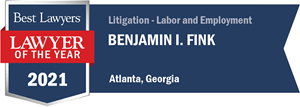

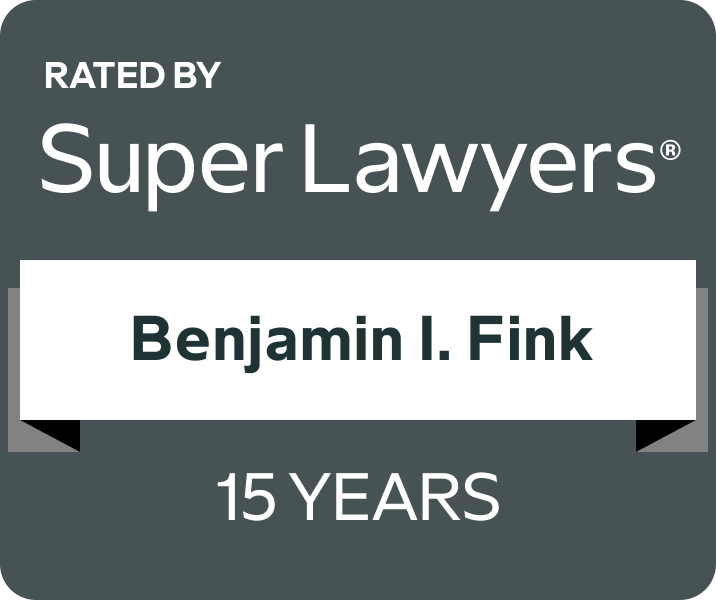
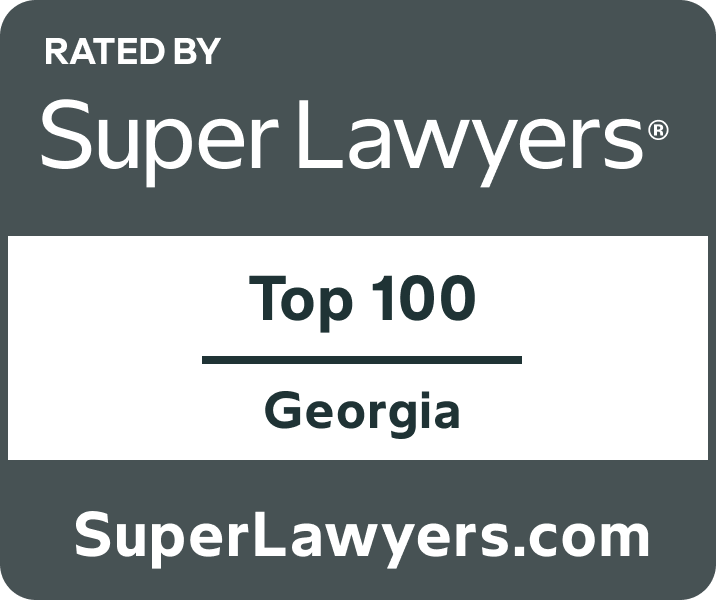

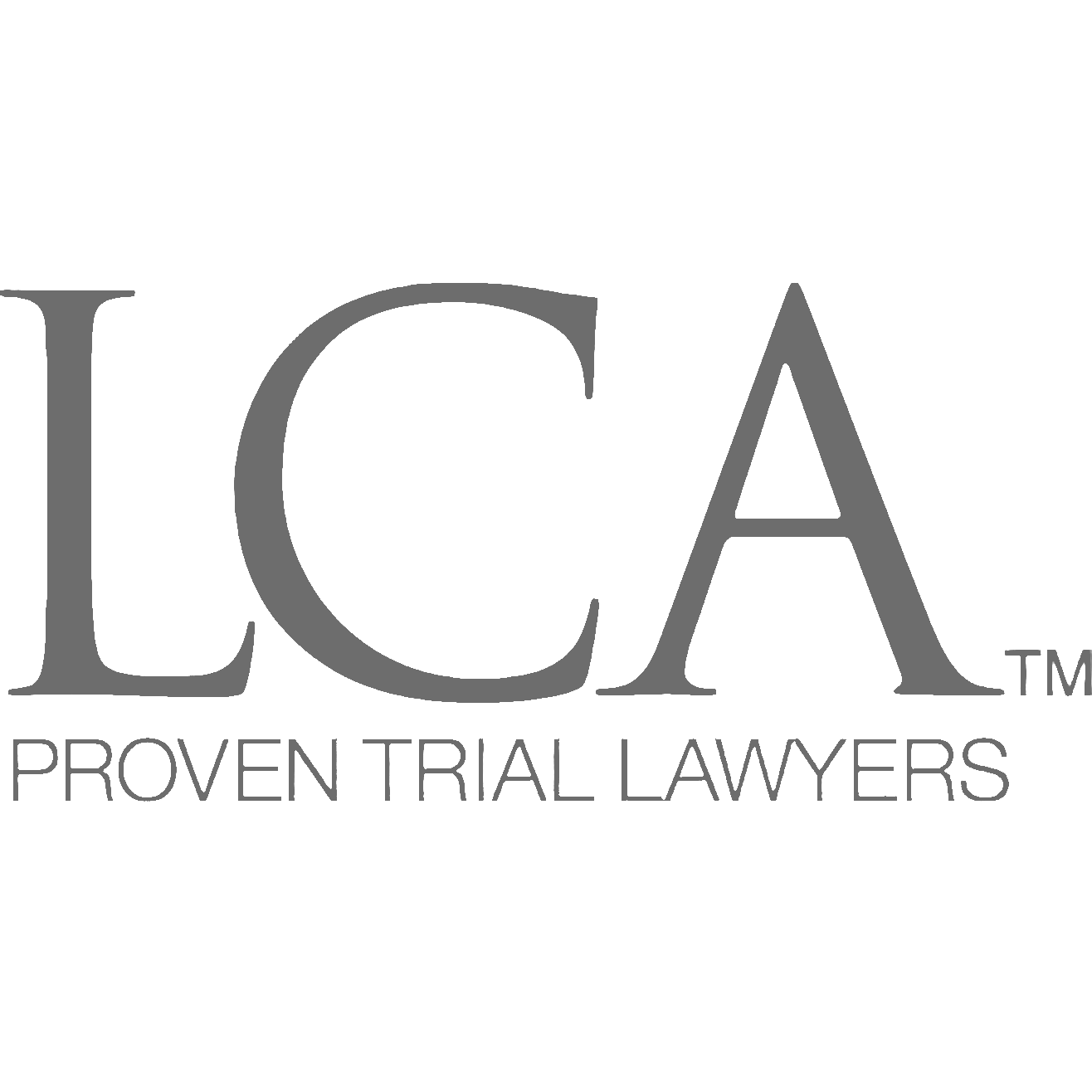

-
News & Insights
Blog Posts
READ MORE
Important Noncompete Update
The FTC’s Noncompete Ban: What You Need to Know

impact on employers in Georgia and beyond
FTC Votes to Ban Noncompetes

Noncompete Ruling: FTC announces special Open Commission Meeting
FTC Announces Special Open Commission Meeting on Rule to Ban Noncompetes

important clarifications
Eleventh Circuit Addresses Key Issues Under Georgia Restrictive Covenants Act

employer faq
Employee Non-Recruitment Covenants in Georgia: An Important Update
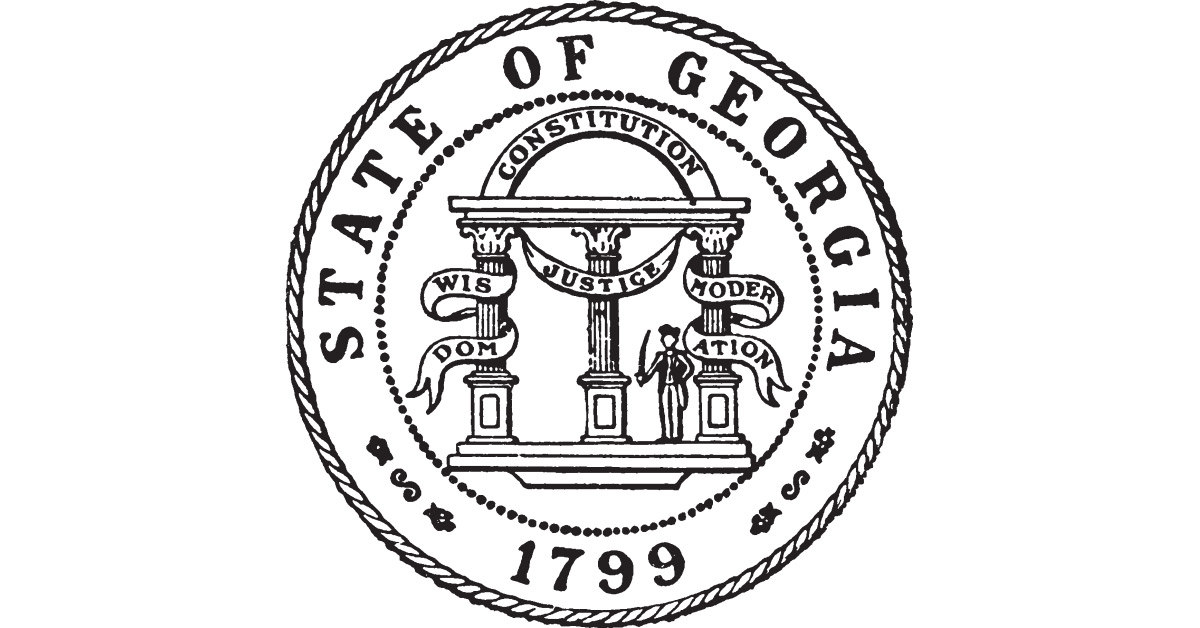
Employers
Significant Development in Enforcement of Non-Recruitment/No-Hire Covenants in Georgia
Presentations
- On March 20, 2024, Ben co-presented “Tips from the Trenches: Litigating and Trying Trade Secret Cases as a Plaintiff and Defendant, What Every Business Needs to Know” at the 2024 DRI Business and IP Property Litigation Super Conference in Philadelphia.
- As Chair of the AIPLA Trade Secret Law Committee, Ben was responsible for the leadership, coordination and program development for the AIPLA Trade Secret Summit in Santa Clara, Calif., one of the industry’s leading trade secret conferences. During the conference, he also moderated and presented “Independent Economic Value and Apportionment: Key Issues in Pleading and Proving Trade Secret Claims” and “Trade Secret Protection and Litigation from the In-house Perspective.” (March 14, 2024).
- On March 6, 2024, Ben served as co-chair for the State Bar of Georgia’s “Restrictive Covenants and Trade Secrets” program and presented “Restrictive Covenants in Employment and Other Agreements.”
- On January 11, 2024, Ben co-presented, “Basic IP Principles and Recent Developments” at the Practising Law Institute’s New York program, IP Issues in Business Transactions 2024.
- On November 15, 2023, Ben participated on a panel to discuss “Now Trending: Trade Secrets” at the 17th Annual Corporate IP Institute event presented by Georgia Intellectual Property Alliance and Atlanta Bar Association.
- On September 28, 2023, Ben was a guest speaker for the Practising Law Institute program, “Noncompetes and Restrictive Covenants 2023: What Every Lawyer, Human Resources Professional, and Key Strategic Decisionmaker Should Know.”
- On September 5, 2023, Ben discussed “Independent Economic Value” as a guest lecturer for an Emory University School of Law Trade Secrets Class.
- On May 2, 2023, Ben co-presented “Trade Secrets and the Banning of Noncompetes: What You Need to Know” at RIMS Atlanta 2023 RiskWorld (risk management society).
- On April 20, 2023, Ben presented, “The FTC’s Proposed Ban on Noncompetes: Everything You Need to Know” to business clients of an Atlanta wealth management firm.
- On March 31, 2023, Ben was a featured panelist on the trade secret panel, “How the New FTC Rule on Non-Competes Affects the Law of Trade Secrets” at the 13th Annual Intellectual Property Symposium of the Business Law Section of the Florida Bar in Tampa, Florida.
- On March 23, 2023, Ben was a featured panelist at the Atlanta Bar Association’s Advanced Employment Law CLE session, “Everything You Need to Know About The Federal Trade Commission’s Proposed Noncompete Ban.”
- In February 2023, Ben co-presented “The FTC Proposed Ban on Noncompetes: What You Need to do Now” to the Association of Corporate Counsel Georgia Chapter. He also presented this topic during a BFV Lunch & Learn to clients and other legal and business professionals.
- On January 4, 2023, Ben discussed trade secret developments on a panel, “Basic IP Principles and Recent Developments” at the Practicing Law Institute program, “IP Issues in Business On Transactions 2023” in New York.
- On December 13, 2022, Ben participated on a panel, “What happens if the Federal Government Restricts Restrictive Covenants?” at the New York City Bar’s Committee on Trade Secrets live webcast, “Navigating the Law of Trade Secrets and Restrictive Covenants.”
- On December 8, 2022, Ben co-presented a “Legislative Update,” including participating on a panel discussion, at the 2022 AIPLA Trade Secret Summit in Miami.
- On October 14, 2022, Ben was a featured panelist at the Atlanta Bar Association meeting (Litigation and Labor & Employment Law sections), “Advancing the Law | Noncompetes & Other Restrictive Covenants – Changing Tides.”
- On September 29, 2022, Ben co-presented “Managing Liftouts: Legitimate Business Strategy or Unlawful Competition?” at a PLI seminar, “Noncompetes and Restrictive Covenants 2022: What Every Lawyer, Human Resources Professional, and Key Strategic Decisionmaker Should Know.”
- On September 7, 2022, Ben led a discussion on “Draft Commentary Review: Ethics Issues in Trade Secrets Disputes” at the Sedona Conference WG12 (Trade Secrets) 2022 Annual Meeting in Reston, Va.
- On August 31, 2022, Ben served as co-chair for the State Bar of Georgia/Institute of Continuing Legal Education program, “Restrictive Covenants and Trade Secrets.” He also presented “Restrictive Covenants in Employment in Other Agreements” and moderated a panel, “Recent Legislative Updates: Are Noncompetes Going to be Banned?”
- On May 18, 2022, Ben presented “Irreparable Harm (Presumed or Not) in Federal Trade Secret Cases” at the AIPLA Spring Meeting in New Orleans.
- On April 28, 2022, Ben served as a panelist to discuss “Non-compete Agreements: Advising Employers and Departing Employees” during the Atlanta Bar Association Labor & Employment Law Section webinar, “The Great Resignation.”
- On April 7, 2022, Ben moderated a panel “Navigating Trade Secret Systems in a Rapidly Changing Innovation Environment” at IPLSPRING, the American Bar Association-Intellectual Property Law Section’s Annual Meeting in Washington, D.C.
- On December 14, 2021, Ben led a discussion on “Getting In and Staying Out of Trouble: Ethical Issues in Trade Secret Cases” at the Sedona Conference WG12 (Trade Secrets) 2021 Annual Meeting in Phoenix, Arizona.
- On December 3, 2021, Ben presented to members of the Association of Corporate Council, “Employer Non-Competes and Other Restrictive Covenants: Trends, Traps and Hot Topics.”
- On November 9, 2021, Ben moderated a panel at the AIPLA annual Trade Secret Summit in Austin, Texas, “Protecting Trade Secrets in a Post-COVID-19 World: Trends, Traps, and other Hot Topics for Protecting Trade Secrets in the Remote Working Environment.”
- PODCAST: “How to Avoid Dismissal and Get an Injunction in Trade Secret Cases (Wisk Aero LLC v. Archer Aviation Inc.) (October 2021)
- On October 7, 2021, Ben presented “Non-Competes, Trade Secrets and Computer Fraud” at The Seminar Group’s 18th Annual Labor & Employment Law conference in Atlanta.
- PODCAST: “Mediating Trade Secret Disputes” (August 2021)
- PODCAST: “The Supreme Court’s Decision in Van Buren v. U.S. (Computer Fraud and Abuse Act)” (July 2021)
- PODCAST: “Litigating Trade Secret Cases, Part 2” (June 2021)
- PODCAST: “Litigating Trade Secret Cases” (June 2021)
- PODCAST: “Litigating Trade Secret & Restrictive Covenant Injunctions, Generally and in the COVID Era” (April 2021)
- On June 10, 2021, Ben participated on a panel, “Handling Evidence Remotely: Maintaining Protection of Confidential/Trade Secret Information and Building the Record for Trial and Appeal” at the 2021 Sedona Conference on Remote Case Management of IP Proceedings.
- On April 1, 2021, Ben participated on a panel, “Trade Secret Roundtable on Developments and Emerging Issues” at NERA Economic Consulting’s Developments in Trade Secret Litigation webinar series (April 1, 2021). Listen to the PODCAST.
- On March 11, 2021, Ben presented “TRO’s, Preliminary Injunctions, Trials… Oh My!” during a Litigation Council of America webinar.
- PODCAST: “Protecting Trade Secrets, Hot Issues Part 2” (March 2021)
- PODCAST: “Protecting Trade Secrets – Hot Issues” (February 2021).
- PODCAST: “The Basics of Noncompete Law & What Lies Ahead” (January 2021).
- PODCAST: “Episode 1: Fairly Competing” (January 2021).
- On December 4, 2020, Ben participated on a BFV Virtual Roundtable to address employment, real estate, noncompete/unfair competition and mergers and acquisitions topics.
- On November 20, 2020, Ben presented during an Atlanta Bar Association Zoom event, “Trade Secret Protection with Employees Working Remotely: What You Need to Know.” This was a joint event with the Labor & Employment Law Section and the Intellectual Property section.
- On November 10, 2020, Ben participated on a panel, “Inevitable Tension: Reconciling Public Court Access with Protecting Trade Secrets in Litigation,” at The Sedona Conference Working Group 12 2020 Annual Meeting.
- On August 12, 2020, Ben moderated a panel, “All You Need to Know About Ex Parte Seizures under the DTSA” at the AIPLA Trade Secret Law Summit.
- On July 28, 2020, Ben presented at the American Intellectual Property Law Association (AIPLA) webinar, “What you Need to Know About Trade Secret Protection.”
- On July 10, 2020, Ben co-presented during a BFV “Office Hours” webinar, “COVID-19/Protecting your Business Now & in the Future.”
- On May 13, 2020, Ben presented “Trade Secrets Practices: What You and Your Employees Need to Know” during an American Intellectual Property Law Association (AIPLA) webinar.
- On March 18, 2020, Ben was invited to help teach a trade secrets class via Zoom for University of Pennsylvania Law School students.
- On February 24, 2020, Ben was a featured speaker on a State Bar of Georgia panel, “Trade Secrets Audits and Asset Management.”
- On January 31, 2020, Ben was a featured speaker at the Practising Law Institute’s program, “Noncompetes and Restrictive Covenants 2020: What Every Lawyer, Human Resources Professional and Key Strategic Decision Maker Should Know” in San Francisco, Calif.
- On January 10, 2020, Ben served as Program Chair and hosted the ICLE: State Bar of Georgia Series seminar “Restrictive Covenants and Trade Secrets in Georgia.” He also presented “Restrictive Covenants in Employment and other Agreements.”
- On November 4-5, 2019, Ben attended the invitation-only annual meeting of the Sedona Conference Working Group 12 on Trade Secret Issues. At the meeting, Ben participated on a November 5th panel, “Protecting Trade Secrets in Litigation About Them.”
- On September 11, 2019, Ben presented to Fulton Superior Court Judges and Staff attorneys, “Georgia Trade Secret Law: Everything You Need to Know About Trade Secrets in 60 Minutes.”
- Ben was scheduled to present “Trade Secret Audits and Asset Management” at the Georgia Bar IP Section 2019 IP Institute in Amelia Island, Florida. (September 6, 2019)
- On March 22, 2019, Ben participated on a panel, “Proactively Dealing with Confidential/Trade Secret Information when Advising a Departing Employee/New Employer,” at the AIPLA 2019 Trade Secret Law Summit in New York.
- On March 21, 2019, Ben moderated “Implementation of a Trade Secret Protection Policy & Process” at the AIPLA 2019 Trade Secret Law Summit in New York.
- On March 14, 2019, Ben presented “Finally! Guidance from the Georgia Court of Appeals on the “New” Restrictive Covenants Act” at the Atlanta Bar Association’s Advanced Employment Law CLE Program.
- On January 10, 2019, Ben moderated the State Bar of Georgia’s ICLE seminar, “Restrictive Covenants and Trade Secrets in Georgia.” During the seminar, Ben also presented “Restrictive Covenants in Employment and other Agreements.”
- On November 5-6, 2018, Ben attended the Sedona Conference Working Group 12 on Trade Secrets in Hollywood, Calif. Attendance is by invitation-only for a select group of thought leaders in trade secrets law. Ben was also invited to serve on a consensus, non-partisan team to draft Principles/Best Practices Commentary on Protecting Trade Secrets in Litigation for the Sedona Conference.
- On October 26, 2018, Ben moderated a panel, “Trade Secret Litigation: Practical Tips for Fast-Changing Standards,” at the American Intellectual Property Law Annual Meeting in Washington, D.C.
- On October 3, 2018, Ben co-presented to Fulton County Superior Court judges & staff attorneys, “Georgia’s Restrictive Covenant Act: Where Does Georgia Noncompete Law Stand Now?”
- On September 21, 2018, Ben participated on a panel, “Two Years In: What we’ve Learned from the Defend Trade Secrets Act,” at the State Bar of Georgia IP Institute.
- On May 3, 2018, Ben co-presented “Worried About Leaving Employees Becoming Thieving Employees?” at the SHRM Atlanta Legal Summit. He discussed what HR professionals can do now to protect their company, confidential information and competitive edge.
- On March 29, 2018, Ben co-presented an “Update on Georgia Employment Law” at the Atlanta Bar Associations Advanced Employment Law CLE program.
- On January 11, 2018, Ben presided over and spoke at the State Bar of Georgia’s Institute of Continuing Legal Education program, “Restrictive Covenants & Trade Secrets in Georgia.” He discussed restrictive covenants in employment and other agreements and participated on a panel to discuss injunctions, declaratory judgments and protective orders.
- On December 5, 2017, Ben presented “TRO’s, Preliminary Injunctions, Trials…Oh My!” at an Atlanta Bar Association continuing education seminar.
- On September 14, 2017, Ben served as moderator at the Federal Bar Association Annual Meeting and Convention program, “Trade Secret Protection Goes Federal.”
- On March 3, 2017, Ben moderated a panel, “The Coca Cola Trade Secret Case: A Case Study of Civil and Criminal Coordination,” at the American Intellectual Property Law Association (AIPLA) Trade Secret Law Summit.
- On March 2, 2017, Ben moderated a panel, “Non-Compete Developments” at the American Intellectual Property Law Association (AIPLA) Trade Secret Law Summit.
- On February 3, 2017 Ben moderated a Trade Secrets session at the American Intellectual Property Law Association (AIPLA) Mid-Winter Institute and presented “New Trade Secrets Protections in the USA and the EU – What you Need to Know to Get Things Just Right!”
- On January 25, 2017, Ben presided over the Restrictive Covenants seminar at the State Bar of Georgia and presented “Restrictive Covenants in Employment and Other Agreements.“
- On September 9, 2016, Ben presented “Non-Competes, Trade Secrets and Other Restrictive Covenants – Oh My!” at the Institute of Continuing Legal Education in Georgia’s seminar on “Growth Companies Legal and Business Considerations.”
- On June 23, 2016, Ben presented “Protecting your Business from Trade Secret Theft” to members of the Emory University Entrepreneur Network.
- On June 21, 2016, Ben co-presented “The Defend Trade Secrets Act: Trade Secret Protection goes Federal” to webinar participants of the Institute of Continuing Legal Education in Georgia.
- On March 18, 2016, Ben was a featured speaker at the Atlanta Bar Labor & Employment Law Section Annual Seminar. He spoke on Restrictive Covenants Matters.
- On January 14, 2016, Ben presented “Restrictive Covenants in Employment and Other Agreements” at a “Restrictive Covenants and Trade Secrets” seminar for the Institute of Continuing Legal Education in Georgia.
- On December 4, 2015, Ben participated on a Georgia State Bar panel, “Restrictive Covenants: Trends in Georgia and Beyond” at the 45th Annual Labor and Employment Law Institute.
- On November 12, 2015, Ben participated on a panel to provide an update on “State and Federal Non-Compete and Trade Secret Legislation” at the 2015 AIPLA Trade Secret Law Summit in Boston.
- On December 5, 2014, Ben presented a “Non-Compete Update” at the Annual Seminar: State Bar of Georgia, Labor & Employment Law Section.
- On December 3, 2014, Ben presented “Law of Restrictive Covenants in Employment and Sale of Business Agreements” at the Lorman Seminar on “Covenants Not to Compete in Georgia.
- On November 7, 2014, Ben presented “Protecting your Business from Trade Secret Theft” to members of the Buckhead Club.
- On May 16, 2014, Ben co-presented “Future of Non-Competes as a Tool for Protecting Trade Secrets” at the American Intellectual Property Law Association (AIPLA) Spring Meeting in Philadelphia, Pa.
- On February 26, 2014, Ben was an invited to present at an American Intellectual Property Law Association webinar on personal electronic devices and the protection of trade secrets.
- On December 3, 2013, Ben spoke at “Covenants Not to Compete,” a Lorman Educational Seminar in Atlanta.
- On September 10, 2013, Ben spoke at the Ocean Tomo Trade Secret Management & Monetization Symposium in Chicago.
- In March 2013, Ben spoke at the Atlanta Bar Association Labor & Employment Law Section seminar on Advanced Employment Law. Ben offered advice on what employers can do to avoid jeopardizing intellectual property when employees depart.
- On December 5, 2012, Ben spoke at the Covenants Not to Compete in Georgia seminar, hosted by Lorman Education Services. He discussed how to avoid the pitfalls of noncompete agreements and other issues about the law of trade secrets and confidential information.
- On December 9, 2011, Ben spoke on The Law of Restrictive Covenants in Employment and Sale of Business Agreements at the Covenants Not to Compete Seminar hosted by Lorman Education Services at the Cobb Galleria Centre.
- On April 14, 2011, Ben spoke about the new Restrictive Covenant Act in Georgia at a meeting of the Georgia affiliate of the National Employment Lawyers Association (NELA).
- On April 12, 2011 – Ben spoke on “How Does The New Georgia Non-Compete Law Affect My Business?” at the Buckhead Club Breakfast Program.
- On March 17, 2011, Ben spoke about the new Restrictive Covenant Act in Georgia at the Atlanta Bar Association Labor & Employment Law Section at The W Midtown Atlanta Hotel.
- On March 17, 2011, Ben spoke about the new Restrictive Covenant Act in Georgia at the UHY Advisors Financial Leaders Seminar at the world headquarters of The Home Depot.
- On February 4, 2011, Ben spoke about Non-Compete and Other Restrictive Covenants at the Cobb County Bar Association Business Law Section seminar at the Cobb Galleria Centre.
- On October 28, 2010, Ben spoke about Georgia’s new restrictive covenant legislation and proposed Constitutional amendment at the Atlanta Bar Association Labor & Employment section lunch at the Capital City Club.
- October 22-23, 2010, Ben spoke on Georgia’s new restrictive covenant legislation and proposed Constitutional amendment at the 29th Annual Business Law Institute, a series of seminars hosted by the Institute of Continuing Legal Education (ICLE) in Georgia at Callaway Gardens.
- On October 7, 2010, Ben spoke on The Legal and Ethical Pitfalls of Changing Law Firms at the Atlanta Bar Association Real Estate Section breakfast at the Buckhead Club.
- On January 29, 2010, Ben spoke about Non-Competes and Other Restrictive Covenants at a seminar on “Practicing Business Law in the New Economy” sponsored by the Business Law and Litigation Section of the Cobb County Bar Association.
- In January 2008, Ben spoke at an ethics, professionalism and mentoring seminar hosted by the Lawyers Club of Atlanta.
- Since 1995, Ben has served annually on the faculty of Covenants Not to Compete, a seminar sponsored by Lorman Education Services. The seminar is designed for attorneys who counsel corporate and business clients on restrictive covenant agreements with employees.
- From 2005 to 2007, Ben appeared as a regular guest on The Career Doctors on WGKA 920 AM providing commentary on a wide range of legal issues facing employees and employers in the workplace.
- Ben spoke on “The Use of Restrictive Covenants in Employment Law” at the Employers’ Duties and Problems seminar sponsored by the Institute for Continuing Legal Education in Georgia on September 26, 2003.
- Ben appeared on the Layman’s Lawyer on WPBA Channel 30 on October 31, 2003 discussing non-compete agreements.
-
Representative Matters
Noncompete, Trade Secret and Competition-Related Disputes
- Served as an expert witness for the defense on law firm trade secrets in a disciplinary proceeding against two lawyers accused of improperly using restrictive covenant agreements with lawyers.
- Obtained consent judgment and injunction against former HR executive of health testing and immunizations company who stole company confidential information.
- Obtained injunctions enforcing noncompetes against former employees of assisted living staffing firm.
- Successfully defeated two attempts at obtaining an injunction to enforce a noncompete against a former regional service coordinator for a large, publicly traded automobile dealership.
- Obtained consent injunction against former R&D scientist of biotech company who was subject to a non-compete and joined a competitor in a similar role.
- Won summary judgment for large, national insurance broker and group of sales executives who transitioned to broker from a competitor in case involving claims of breach of non-compete and customer non-solicitation covenants, breach of fiduciary duty, trade secret misappropriation and computer fraud.
- Successfully defended and resolved claim in Delaware Chancery Court of breach of a non-recruitment covenant against a large, national insurance broker arising from potential acquisition of a competing broker.
- Successfully prosecuted and resolved claim for breach of no-hire covenant against competitor/buyer of apartment complex.
- Successfully prosecuted and resolved claims for breach of noncompete in stock incentive plan of Fortune 50 company against former senior executives who joined a competitor.
- Successfully defended large, national staffing firm and sales executives who transitioned to firm from a competitor in case involving claims of breach of non-compete and trade secret theft.
- Selected to serve as a neutral to evaluate potential violation of non-compete by executive who transitioned from one global risk management company to another.
- Served as mediator in non-compete/trade secrets dispute in case pending in federal court in New York between parties from California and New York.
- Obtained favorable settlement for commercial space industry consulting firm against two employees who departed to form a competing firm and who took confidential information and trade secrets and violated certain restrictive covenants.
- Obtained favorable settlement for large, national accounting firm against consultant who left to form his own competing firm and who took confidential information and violated certain restrictive covenants.
- Obtained favorable settlement for legal staffing firm against sales executive who departed to join competing firm and took significant confidential information and trade secrets.
- Successfully enforced restrictive covenants against former manager of parking management company.
- Successfully enforced restrictive covenants against former sales person for servicer for one of the nation’s largest bank lending programs.
- Obtained favorable settlement of litigation in Georgia and California for large, national institutional and specialty pharmacy company against former national sales manager who departed for a competitor.
- Obtained final injunction and monetary judgment for analytics-drive population health and testing platform company against former human resources manager who stole confidential information.
- Obtained favorable settlement for financial advisor and his new firm in FINRA arbitration where former firm had asserted claims for breach of a non-solicitation agreement, breach of fiduciary duty and other related claims.
- Successfully challenged over broad non-compete agreement for senior sales executive and physician and their new employer, a public company in the disease management business.
- Successfully enforced non-compete agreement against former sales representative and new employer for large, national insulation sub-contractor.
- Appointed by Superior Court of Cobb County, Georgia as Special Master to preside over expedited discovery and carry out the terms of a Temporary Restraining Order in a lawsuit involving alleged economic espionage and theft of trade secrets and confidential information.
- Obtained favorable settlement in federal court case in Tennessee in case involving enforcement of non-compete agreements against former owners of company acquired by client, a large, national insulation sub-contractor.
- Consulted by multi-national, aerospace manufacturer concerning hiring of management team from a competitor.
- Obtained favorable settlement for CFO for hire firm against former employee who improperly diverted business and illegally downloaded information from the firm’s computer systems.
- Obtained favorable settlement for five independent investment advisors who left one financial service firm for another and against whom claims for breach of a non-recruitment covenant, trade secrets violations, violations of the Georgia Computer Systems Protections Act and other related claims were asserted in both federal court and arbitration.
- Successfully defended medical device distributor and its employees from claims of unfair competition and breach of non-compete agreements brought by former distributor.
- Successfully defended executive in temporary and contract staffing business from attempt by former employer, a large multi-national company, to enforce over broad non-compete agreement.
- Obtained favorable settlement for accountants who left a regional firm to form their own accounting firm and were sued for breach of a non-disclosure agreement and for violation of the trade secrets act.
- Obtained consent injunction for leading seller of audio and video mounting solutions against former employee prohibiting solicitation of customers.
- Obtained consent injunction for leading online social network for Hispanic health in the United States against former employee, prohibiting use of confidential information and trade secrets and solicitation of customers and prospective customers.
- Obtained favorable settlement for cardiologist left with Hobson’s choice of remaining a partner in his medical practice and participating in tax fraud being committed by his partners or leaving and violating his non-compete agreement.
- Obtained transfer to federal district court in Texas of lawsuit brought in federal court in Georgia by former employee challenging enforceability of non-compete agreement for Texas-based company providing financial and insurance products to automobile dealers.
- Successfully defended minority owner of limited liability company in vinyl siding business from attempt by majority owner to enforce over broad restrictive covenants in their operating agreement.
- Successfully defended founders of software and source code escrow company from attempt by former employer to enforce over broad restrictive covenants.
- Successfully challenged over broad restrictive covenants of former employer on behalf of founders of direct mail marketing company.
- Successfully challenged over broad restrictive covenants of former employer on behalf of founder of distributor of critical power solutions such as uninterruptible power, battery back-up power solutions and data center power.
- Successfully enforced restrictive covenants in purchase and sale agreement for purchaser of blind and drapery business.
- Successfully challenged over broad restrictive covenants of former employer on behalf of management executives who joined competing company in the logistics industry.
- Obtained favorable settlement for company providing branch technology and software solutions for financial institutions against former employee who breached restrictive covenants and misappropriated trade secrets.
Business Disputes
- Obtained favorable settlement for former shareholders of company in claim brought by former executive asserting ownership in stock options worth more than $1 million.
- Defended seller of company in commercial arbitration in New York City against claims by buyer in excess of $150 million for alleged fraud and breach of indemnification provisions in Stock Purchase Agreement.
- Obtained favorable settlement for large, publicly-traded financial institution in federal court case brought by lessor of equipment alleging conversion and unjust enrichment based on funds paid to that institution by a buyer of leased equipment from an insolvent company.
- Obtained summary judgment for attorney/real estate investor against legal malpractice, fiduciary duty and partnership claims asserted by real estate agent/contractor/property manager relating to 50 properties acquired by the investor through various entities.
- Obtained $500,000 jury verdict for distributor of roofing products against manufacturer for breach of distributorship agreement and successfully defended distributor against counterclaims by the manufacturer for breach of fiduciary duty and fraud.
- Successfully defended former Chief Executive Officer of public company in the gaming business from claims of securities fraud in excess of $5 million brought by a shareholder in federal court by obtaining directed verdict at the close of the plaintiff’s case.
- Obtained favorable settlement for publicly traded software development and e-commerce firm in defense of claims by former customer for fraud and breach of contract.
- Obtained reversal on appeal of jury verdict and judgment for breach of contract and fraud entered against clients in the pre-funding of personal injury lawsuits business in case tried by other counsel.
- Successfully defended seller of for-profit trade school in federal court in Dallas, Texas from claims of buyer for fraud and breach of contract.
Trademark/Copyright and other Intellectual Property Matters
- Obtained favorable settlement for direct-mail and digital marketing firm in relation to claims of copyright infringement and misappropriation of trade secrets brought by former web developer in federal court in Illinois.
- Obtained favorable settlement for a direct-mail marketing firm in relation to claims of copyright infringement by a competitor.
- Obtained favorable settlement for a software and transaction processing company in relation to claims for copyright infringement brought by the Business Software Alliance.
- Obtained favorable settlement for podiatrist in relation to claim of trademark infringement asserted by a manufacturer of ankle braces and related products.
- Obtained favorable settlement for operator of chain of retail gold-buying businesses in relation to claims of trademark infringement brought by a competitor.
Employment Matters
- Testified at trial as an expert witness on reasonableness of attorneys’ fees for the defense in a dispute between a large hospital system and its former CEO.
- Served as arbitrator in multiple FLSA disputes before the American Arbitration Association.
- Successfully defended hospice company against claims of age and gender discrimination and violation of the Equal Pay Act by former staff physician by obtaining summary judgment as to all of the plaintiff’s claims.
- Obtained favorable settlement of sexual harassment claim involving allegations of rape by a store manager brought by former employee of large, regional fast-food chain against the company.
- Represented joint venture of three large, publicly traded competitors in drafting and negotiating employment agreement for chief executive officer of joint venture.
- Obtained favorable outcome in defense of claims of discrimination and harassment by a former employee of a large, national, innovative aviation solutions company.
- Defended insurance consulting firm at trial against compensation and fraud claims brought by former president of company.
- Successfully defended local employee benefits insurance broker against claims for commissions and other compensation by former independent contractor.
- Obtained directed verdict at the close of the plaintiff’s case on president’s claim of fraud, though jury returned a verdict for him on his contract claims.
- Served as local counsel in federal court in Georgia defense of ERISA claims brought by former manager of large, multi-national retailer.
Representation of Lawyers and Law Firms
- Represented large, regional law firm in defense of attempt to disqualify the firm from a large litigation matter based on a purported prior representation of one of the adverse parties.
- Served as expert witness in defense of attorneys’ fees motion against company and its counsel arising from their pursuit of a lawsuit against former employees and their new employer for violation of non-compete agreements, tortious interference with business, contractual and employment relations and breach of fiduciary duty.
- Served as expert witness in defense of legal malpractice claim against attorneys who represented homeowner in dispute with contractor over home repairs and renovations.
- Served as expert witness in defense of legal malpractice claim against in-house attorney arising out of ownership interest in company provided as part of his agreement to join the company.
- Represented real estate law firm with respect to theft of documents and information by departing partner.
- Represented real estate attorney in facilitating settlement between insurer and plaintiff in malpractice case against the attorney.
- Represented estate planning and probate firm in dispute with former partner over buyout.
- Represented real estate attorney in facilitating settlement between insurer and plaintiff in malpractice case against the attorney.
- Advised group of 5 partners who left 45-attorney law firm to form their own firm on ethical and legal issues relating to the transition.
- Represented DUI law firm with respect to theft of documents and information by departing associate.
-
Publications
- Quoted in: “Takeaways From The FTC’s Noncompetes Ban,” Law360 (April 24, 2024)
- Co-Author, “Restrictive Covenant Litigation” chapter in Georgia Business Litigation, 2024 Daily Report Books, a division of ALM Media, LLC (2024)
- Quoted in: “1st Circ. Ruling Bolsters Insurer Trade Secret Protections,” Law360 (September 1, 2023)
- “Consider Liability Before Accessing Workers’ Personal Emails,” Law360 (September 14, 2022)
- “Is Strict Enforcement of Non-Competes Good Policy?” PLI Current: The Journal of PLI Press, Vol. 6 (July 1, 2022)
- “The Sedona Conference Commentary on Protecting Trade Secrets in Litigation About Them,” Contributing Editor (March 2022)
- “Is Liberal Enforcement of NonCompetes Still Good Policy?,” Georgia Bar Journal (October 2020)
- “Employer Alert: Non-Competes are Under Attack in Certain States,” Berman Fink Van Horn E-News (Winter 2020)
- “Protecting Trade Secrets in a Coworking Space,” American Intellectual Property Law Association’s “Innovate Magazine” (October 2019)
- “Practical Law Commercial Transactions: Confidentiality and Nondisclosure Agreements (GA),” published by Thomson Reuters (February 2018)
- “No Punitive Damages under the GCSPA: What Employment Litigators should Know about the Georgia Supreme Court’s Recent Decision,” Atlanta Bar Association Labor & Employment Bar Section Newsletter (Spring 2017)
- “Spies in our Midst: The Reality of Trade Secret Theft,” Emorywire, the digital magazine of Emory Alumni Association (October 2016)
- “The Employee Fiduciary Duty in Georgia: Narrowest in all the Land?” Atlanta Bar Association Labor & Employment Law Section (Spring 2016)
- “Trade Secret Lessons,” Berman Fink Van Horn E-News (Winter 2015/2016)
- “Recent State Law Legislative Developments Relating to Non-Competes and Trade Secrets” (November 2015)
- “Defensible Deletion after Information Theft is Discovered,” Today’s General Counsel (February/March 2015)
- BFV’s Global Reach, Berman Fink Van Horn E-News (December 2014)
- A Journey Back in Time: The National Center for Civil & Human Rights, The Atlanta Lawyer – The Atlanta Bar Association (November 2014)
- Mobile Devices in the Workplace: Protecting Trade Secrets and Confidential Information, Attorney at Law Atlanta Magazine (Volume 3 Number 5)
- Bipartisan Bill Introduced in Congress Would Create a Private Right of Action for Trade Secret Theft Under Federal Law, Berman Fink Van Horn E-News (Summer 2014)
- Interview with Mr. Benjamin Fink: Job Market for Students and Recent Grads (May 2014)
- Is Strict Enforcement of Non-Competes Good Policy? Substantial Evidence Suggests it is Not (April 2014)
- Is your Company BYOD or COPE?, Atlanta Bar Association Labor & Employment Section Newsletter (Holiday Edition 2013)
- Co-Author, “Restrictive Covenant Litigation” chapter in Georgia Business Litigation, 2013 Daily Report Books, a division of ALM Media, LLC (2013)
- Why we do Pro Bono Work, Berman Fink Van Horn E-News (November 2013)
- The Georgia Supreme Court’s “Rejection” of the Inevitable Disclosure Doctrine – What it May Mean and What it May Not, Atlanta Bar Association Labor & Employment Law Section Newsletter (Summer 2013)
- Protect your Company Information from Personal Devices, Berman Fink Van Horn E-News (April 2013)
- Is Sending an Announcement “Solicitation?”, Berman Fink Van Horn E-News (October 2012)
- The Enforceability of Choice-of-Law Provisions in Employment Agreements in Light of Georgia’s New Restrictive Covenants Act, Atlanta Bar Association Labor & Employment Section Newsletter (Winter 2011-2012)
- A Primer for Georgia Employers on What Litigation Under the New Restrictive Covenants Act May Look Like, Business Law Perspectives (Spring 2011)
- “The Game has Changed: What will Litigation under the New Restrictive Covenants Act Look Like?”, Atlanta Bar Association Labor & Employment Law Section Newsletter, Spring 2011
- Georgia’s New Non-Compete Statute: Is This Legislation Good for Business in Georgia? Business Law Perspectives (Summer 2010)
- Ben Fink Quoted: Noncompete Law To Spur Drawn-Out Battles (subscription required) Law 360, a newswire for business lawyers (April 2011)
- Litigation Holds and the Preservation of Relevant Information: Business Acumen and Good Management Practices in the Electronic Era Business Law Perspectives (Spring 2010)
- Protecting Your Customer Relationships in the BlackBerry Age Business Law Perspectives (Winter 2010)
- Significant Changes to Georgia Law on Non-Competes Possibly on the Horizon Business Law Perspectives (Fall 2009)
- Daily Report cites Benjamin I. Fink for work on fee award in Title VII case.
- How to Protect Your Business from Employees Who Leave Builders Resource Magazine – April 2007.
- Restrictive Covenants in Georgia: Avoiding the Choice of Law Trap.Employment Law 360.com November 27, 2006.
- Can Your Web Site Cause Your Company to be Sued in States Other than the State in Which Your Business is Located? Techlinks.net (Monday, April 19, 2004)
- Personal Jurisdiction and the Internet: Changing the Rules or Not? Technology Law Section Newsletter, State Bar of Georgia (Winter, 2003)
- Protecting Your Business from Start to Finish: Identifying Your Objectives When Using Restrictive Covenants in Employment Agreements, The Human Resource (April, 2003)
- Employment Agreements-Leaving Employees Can Sometime Be Thieving Employees,Competitive Edge (September/October, 2002).
- Employment Agreements in Georgia: Avoiding Costly Mistakes, HR Atlanta, Volume 7, No. 5 (October, 1999).
-
Community
- Alumni Board of Emory Law School (2015 – present)
- Immediate Past President (2023 – 2024)
- President (2021 – 2023)
- President-Elect (2019 – 2020)
- Dean of Emory Law School Search Advisory Committee (2023)
- Conexx: America Israel Business Connector
- Chair (2015 – 2017)
- Chair Elect (2013 – 2015)
- Vice Chairman (2009 – 2013)
- Executive Committee (2003 – present)
- Board of Directors (1999 – present)
- Chairman, Professional Committee (2003 – 2012)
- Duke University Atlanta Regional Alumni Board (September 2018 – 2022)
- Duke University Alumni Admissions Advisory Committee (2000 – 2021)
- Georgia Supreme Court
- Appointed by Georgia Supreme Court as Mentor for Transition into Law Practice Program
- Alumni Board of Emory Law School (2015 – present)